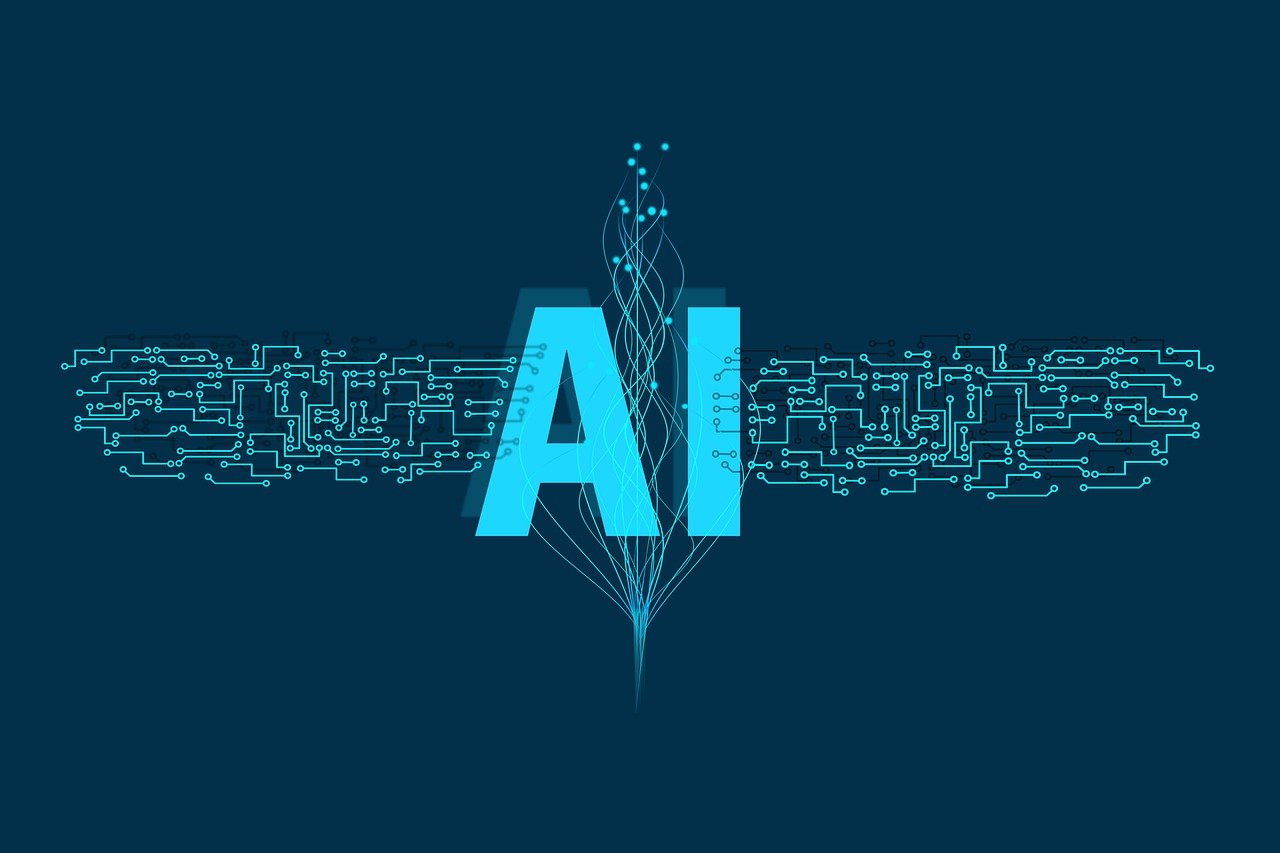Biotech
AI Breaks into Spanish Laboratories: What Is It Used For and How Much Money It Will Generate
The Spanish health AI sector will go from moving €130 million in 2022 to generating €2.5 billion in 2030. Companies such as Almirall, Grifols or Faes already incorporate AI in their development and innovation processes. At Datision, they pointed out six uses that the pharmaceutical industry is giving to AI. The demand for AI professionals in laboratories is growing.

The use of artificial intelligence (AI) in the Spanish healthcare field will grow very strongly over the next six years. In billing figures, the sector will go from moving just over €130 million in 2022 to generating €2.5 billion in 2030. This is the boom drawn by the Spain Artificial Intelligence (AI) in Healthcare Market Analysis report, prepared by the specialized consulting firm Insights10.
The optimistic forecast is based on the great advances that are being made in this field. “Spanish universities and research institutes are already working intensively on AI-based health solutions,” highlight the authors of the document.
In recent years, researchers in the country have focused on this new technology. The Barcelona Supercomputing Center (BSC-CNS) has created mechanisms with AI to evaluate medical images; The Institut Valencià de Biomecànica is applying technology to the world of prosthetics and the Spanish government itself is investing in projects that promote the use of AI in healthcare, such as the creation of its own observatory.
Read more about the importance of AI in the health sector and find the latest financial news of the day with our companion app Born2Invest.
The Spanish health AI sector will go from moving €130 million in 2022 to generating €2.5 billion in 2030
“The AI scenario in Spanish healthcare is still in its first phase, but we believe that government initiatives and partnerships between technology companies and healthcare providers will drive its growth,” the authors say. At the moment, the report indicates that 11% of health professionals use AI and that another 42% have explicit intentions to use it within a short time.
AI, also in Spanish pharmacies
Beyond the boost that the Spanish public sector is giving it, AI has also made a strong entrance into the laboratories of Spanish pharmaceutical companies. The pharmaceutical company Almirall , for example, is already working with the BSC-CNS and Nostrum Biodiscovery to design new protein modulators.
They will be the basis of new therapies for dermatological diseases. In the case of the Catalan Grifols, it has closed an agreement with Google Cloud to apply AI in the development of new biopharmaceutical medicines. Another of the large Spanish ‘pharma’, Faes Farma, has been using different branches of AI for years to open new business areas. Recently, she has partnered with the Basque Artificial Intelligence Center, a public-private innovation center that aims to accelerate the implementation of AI in the Basque industry.
“In the pharmaceutical environment, knowledge and research are the main basis of the business, so having technology capable of analyzing large volumes of data and learning about it allows for exponential improvements,” Andrés Torregrosa said, CEO of Datision, a spin-off founded by GDE Innovation Partners and the Industrial Robotics and Informatics Institute. The emergence of AI in pharmaceutical companies is transforming the sector. “They can improve from the drug manufacturing process, progressing problems in production equipment to drug quality control,” said Torregrosa.
Companies such as Almirall, Grifols or Faes already incorporate AI in their development and innovation processes
At Datision, they pointed out six uses that the pharmaceutical industry is giving to AI . First, they use technology to generate entirely new formulations. “With AI, it is possible to determine hidden patterns that help R&D&IA departments propose new formulations, reduce testing time and limit the number of experimental trials,” the company exemplifies. He assured that it is also useful to reduce the overall time of the drug lyophilization process; better control packaging, packing and packaging machines; drug microencapsulation work; drying processes and surface tension data, key to many chemical processes.
In the Gebro Pharma laboratories , one of the most important in Austria and which has a subsidiary in Spain, they are working on the implementation of AI. “In the field of this technology, 2023 has been the year of hype , but 2024 will be the year of the implementation of AI as a work assistant in our industry,” said Ricard Castellet, head of Digital Transformation at this pharmaceutical company. “We want it to help us optimize the company’s current internal processes in order to be even more competitive,” he added.
A sector with a future
In addition to transforming the processes of the pharmaceutical industry, AI has also led to the incorporation of new professional profiles in laboratories. ” Data scientists , experts in exploiting the generated data to the maximum and developing models that complement and help researchers, are increasingly needed,” said Torregrosa, CEO of Datision.
The demand from professionals is growing proportionally to the evidence of the potential use of this technology in the health sector. “Health professionals such as doctors, pharmacists, veterinarians or biologists are becoming more and more interested in AI,” says Jose Ibeas , director of the Health/AI Program of the Generalitat of Catalonia. He is also co-director of the Master in Artificial Intelligence offered at the Parc Taulí Hospital in Sabadell. “We are beginning to generate a waiting list to take it, something unthinkable a few years ago,” he confesses to this medium.
The demand for AI professionals in laboratories is growing proportionally to the evidence of its potential use
The job opportunities for students are multiple: from research and innovation in pharmaceuticals to the generation and coordination of projects, and technical advice. “The undergraduate, graduate and postgraduate teaching structures will be forced to restructure the curricula in order to train professionals ready to work in a society in which AI will play a very important role,” she warned.
__
(Featured image by geralt via Pixabay)
DISCLAIMER: This article was written by a third party contributor and does not reflect the opinion of Born2Invest, its management, staff or its associates. Please review our disclaimer for more information.
This article may include forward-looking statements. These forward-looking statements generally are identified by the words “believe,” “project,” “estimate,” “become,” “plan,” “will,” and similar expressions. These forward-looking statements involve known and unknown risks as well as uncertainties, including those discussed in the following cautionary statements and elsewhere in this article and on this site. Although the Company may believe that its expectations are based on reasonable assumptions, the actual results that the Company may achieve may differ materially from any forward-looking statements, which reflect the opinions of the management of the Company only as of the date hereof. Additionally, please make sure to read these important disclosures.
First published in PlantaDoce. A third-party contributor translated and adapted the article from the original. In case of discrepancy, the original will prevail.
Although we made reasonable efforts to provide accurate translations, some parts may be incorrect. Born2Invest assumes no responsibility for errors, omissions or ambiguities in the translations provided on this website. Any person or entity relying on translated content does so at their own risk. Born2Invest is not responsible for losses caused by such reliance on the accuracy or reliability of translated information. If you wish to report an error or inaccuracy in the translation, we encourage you to contact us

-

 Fintech2 weeks ago
Fintech2 weeks agoMuzinich and Nao Partner to Open Private Credit Fund to Retail Investors
-

 Fintech21 hours ago
Fintech21 hours agoRipple and Mercado Bitcoin Expand RWA Tokenization on XRPL
-

 Crypto1 week ago
Crypto1 week agoBitcoin Traders on DEXs Brace for Downturn Despite Price Rally
-

 Crowdfunding6 days ago
Crowdfunding6 days agoFrom Confiscation to Cooperation: Funding Casa de la PAZ’s Social Transformation
























